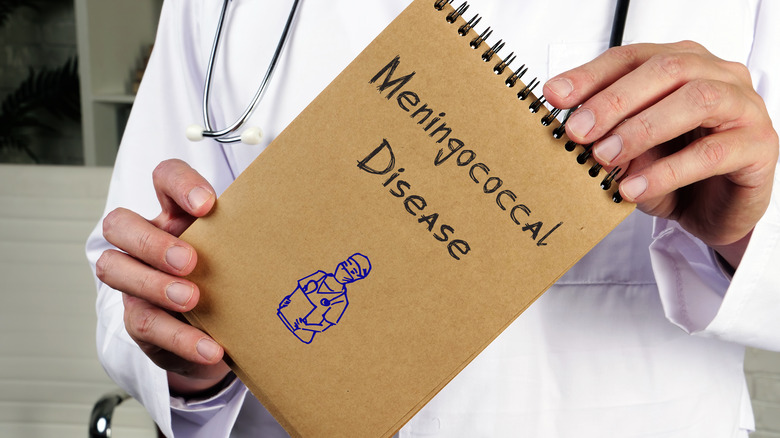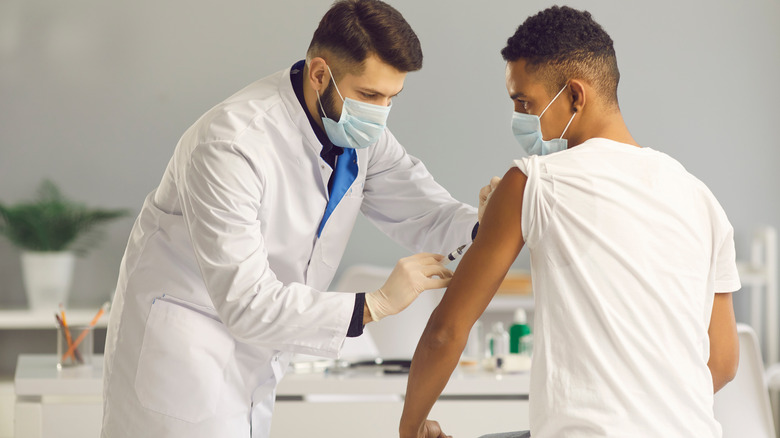What You Need To Know About The Recent Outbreak Of Meningococcal Disease
The Florida Department of Health has issued a warning for residents of an outbreak of meningococcal disease. In a statement, the organization said the number of meningococcal cases reported so far this year has surpassed the total number of cases in the last five years. It also explained that the groups most vulnerable are men who have sex with men, people with HIV, those with a compromised immune system, and college students. The National Foundation for Infectious Diseases (NFID) also reports that young people between the ages of 16 and 23, infants less than a year old, military recruits, and people living in an area where there is an outbreak of the disease are also at risk.
Vaccines are available for those at risk of contracting the illness, and the Centers for Disease Control and Prevention is recommending that all gay and bisexual men get the MenACWY vaccine if they live in Florida or plan to travel to the state. The MenB vaccine is recommended for young adults between the ages of 16 and 23.
Meningococcal disease can be dangerous
Meningococcal disease is a serious infection caused by the bacteria Neisseria meningitidis (via NFID). The condition can lead to meningitis, which is swelling of the brain and spinal cord. It can also lead to an infection in the bloodstream or pneumonia. The NFID points out that even with vaccination, 1 out of every 10 people who become infected with the disease will die. Up to 20% of those who contract the disease and recover will most likely suffer permanent complications that include kidney and brain damage, hearing loss, and the amputation of legs, arms, fingers, or toes.
The disease is passed from person to person through throat and respiratory secretions, such as kissing and coughing, per the NFID. Symptoms of meningococcal disease are similar to the flu and can include fever, headaches, nausea, vomiting, a stiff neck, fatigue, and a purple rash. Death can occur in as little as 24 to 48 hours, so it is important to seek medical attention if you have any symptoms and are at risk.


